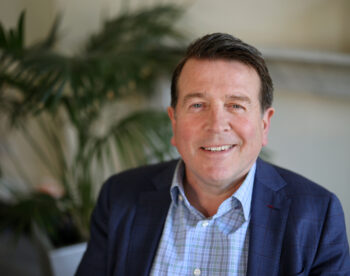David Beckham has been getting it in the neck for allegedly earning £150 million for being a sporting ambassador for Qatar, writes David Little, a Partner in our Commercial department who increasingly handles Sports Law cases too.
Is it morally justifiable, the argument goes, for Becks to promote Qatar? How can he endorse that regime while being an ambassador for UNICEF, the United Nations’ children’s charity? Could it damage the reputation of a man whose status in the mind of the public appeared to soar in September when he queued like any commoner, for hours to pay his respects following the death of H M Queen Elizabeth II?
The first reports of his Qatar contract in October 2021 indicated it was worth £150 million over 10 years to Beckham but The Athletic in this excellent article understands he will actually be paid around £12 million a year for an initial three years, with options to extend.
Still, why let the facts get in the way of a good story.
Our Prime Minister, Rishi Sunak, also faced flak for praising the Qatar World Cup. He wrote: “Hats off to Qatar for hosting an incredible World Cup so far.” One assumes he has matters of state and diplomacy at the forefront of his mind, rather than footie. And Qatar has oil. Lots of it.

(Looking at this video, of fans arriving for the France v England game, isn’t the silence deafening? Even League II midweek matches attract a more spirited crowd. Everyone looks deflated. And that was before the score finished 2-1.)
Certainly, the decision to award the tournament to Qatar in 2010, ahead of the US, Australia, Japan and others, has concerned many. In his defence Beckham would doubtless argue that the country has become more progressive in the glare of the world’s spotlight these past twelve years.
But will we remember the sponsors who paid millions to advertise on the pitch side hoarding during the France v England game? Who are Vivo, BYJUS and crypto.com?
Are you now tempted to buy Qatar Energy? Go on holiday to Umm Al Afaei, Al Wakrah or Ras Abu Aboud?
No? Nor me.
But, lest anyone rail against the fact that the Emirate has less than acceptable views about human rights, when England won the World Cup in 1966 homosexuality was illegal in many countries. Including the UK.
The Sexual Offences Act was not passed until 1967.
In case you’re wondering where ‘sportswashing’ came from, according to Prospect magazine “Sportswashing was first coined by users on Twitter ten years ago. It is modelled on the expression greenwashing, which gained popularity in the 1990s among environmental activists who targeted large corporations they considered guilty of projecting an environmentally conscious image while continuing to pollute.”
As a Sports lawyer the lessons learned from Qatar are fascinating, and will resonate for literally decades, and across many sports.
Contact our Sports Lawyer
David Little, is a Partner in the Corporate & Commercial team and also Head of Sports Law for the firm. If you would like to contact him please quote Ref CB369 on either 020 7631 4141 or email company@bishopandsewell.co.uk.
The above is accurate as at 13 December 2022. The information above may be subject to change during these ever-changing times.
The content of this note should not be considered legal advice and each matter should be considered on a case-by-case basis.





